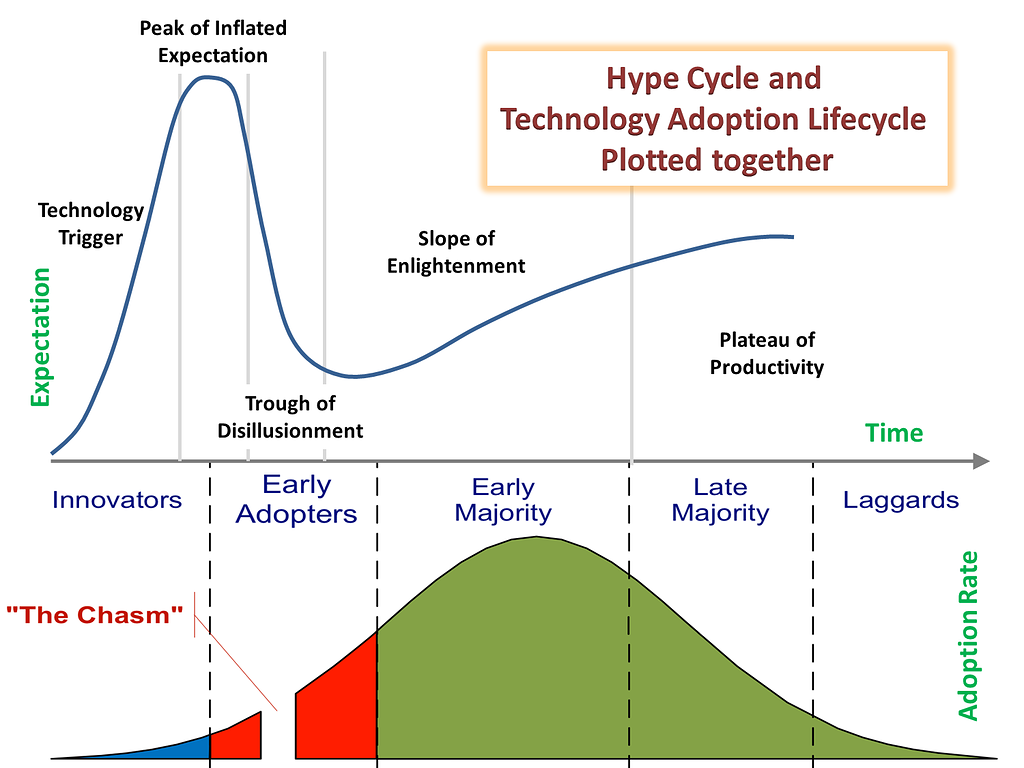How Decentralized Is Bluesky Really?
-
@serapath
> Every such network was at some point started using option (2.) ...but what modalities would you choose when setting it up? what are the options?Don't know yet. With luck, I may find out.
-
smallcircles (Humanity Now 🕊)replied to 𝓼𝓮𝓻𝓪𝓹𝓪𝓽𝓱【ツ】☮(📍🇬🇧) last edited by
What I find interesting is the analogy to Big Industry
 .
.How is it that big industry can run the most intricate global just-in-time supply lines between ultra-complex factory complexes and their suppliers, and is able to profitably produce consistent output to consumers en masse.
And a collab between 2 foss projects, totaling 4 people, is most likely to end in a catfight drama playing out online. And maybe, if lucky, forks.

How are we supposed to topple hypercapitalism?
-
smallcircles (Humanity Now 🕊)replied to bhaugen last edited by
This discussion is very interesting. Unfortunately it is lost in fleety, threadrotting in fedi timeline history tomorrow.
To the general vision, I'd say let's make it happen.. gradually and sustainably

I have ideas..

Proposal: Start a fellowship to explore the Social Web
:rainbow: " Let’s Reimagine Social " :first_quarter_moon_with_face: Background: “Protocol laboratory” The initiative started by @helge to gather feedback in Wiki: Vision for a Fedi Specification and evaluate feasib…

Discuss Social Coding (discuss.coding.social)
And there is action already:

Wiki: Vision for a Fedi Specification
Social Web Protocol Considerations Wiki Post. Please Participate! First read the Introduction by @helge. Status → :brain: Brainstorming. Gathering feedback. Contents :muscle: Co-creation log …

Discuss Social Coding (discuss.coding.social)
Hop on, and join the fun, you are invited.

-
𝓼𝓮𝓻𝓪𝓹𝓪𝓽𝓱【ツ】☮(📍🇬🇧)replied to smallcircles (Humanity Now 🕊) last edited by
It's not entirely true though.
Open source is everywhere and won already and it started with linuxHow is it possible that linux as the biggest and most popular example is so stable and contains so many packages and contributors and maintainers?
How is it possible that the entire web runs on bundled npm packages and the deep node_modules folders behind that are again having so many contributors and maintainers?
Its obviously possible and happening, but no compensation
-
@bhaugen @smallcircles @serapath @cwebber
A third choice has ample precedent:
3. find several competing economic networks working on the same solution, convince them to cooperate, pool resources and share the burden. This was the motivation and support for X-Window, the backers backed BECAUSE they didn't trust each other!
Consider for example, municipal public Works tracking. No one community would have the resources, but together, internationally, all it needs is coordination

-
smallcircles (Humanity Now 🕊)replied to 𝓼𝓮𝓻𝓪𝓹𝓪𝓽𝓱【ツ】☮(📍🇬🇧) last edited by
Open source is everywhere and won. Agreed. FOSS ate the world.
Open source maintainers however. Esp. the free software types.. poor folks. That includes me too, sadly.
If people earning decent sustainable income is a criterium, then FOSS has failed and is inherently unsustainable. Even more so because mosts the fruits of its near-slave labour (not talking hobbyists) are harvested by fat smiling corporate farmers, plucked, low-hanging fruit.
Protected by a license sticker.
-
@evan I’d be curious to hear more about your thoughts here.
I have worked in extremely patent laden spaces and I have never shied away from reading them as ignorance doesn’t offer a defense (in the US at least). I would read everything I could with the intention to be aware of the shape of the field and force my inventions to be developed to avoid them.
Is there something different about your space that allows you to be willfully unaware and somehow insulates your work?
-
@teledyn @bhaugen @smallcircles @cwebber
i think this is a grwat suggestion.
But the way you describe it sounds like:
1. networking, politics ans bureaucracy, so not the path of least resitance open to the masses.
2. wouldnt work for a codec or parser or sort algorithm or any of the myriads of little open source modules individuals couplld createI do believe (3.) as you say IS the answer, but absolutely not in its current form. This has to become as easy as a pull request and merge
-
@amd @cwebber @bnewbold I don't know.
I wish that Bluesky would publish an open, royalty-free patent license on AT so this wasn't a problem for anyone else in the space.
In the open standards world, we typically only consider work from other open standards, specifically for this reason. So, basing a W3C spec on an IETF RFC.
So my experience here is slim.
-
-
-
smallcircles (Humanity Now 🕊)replied to 𝓼𝓮𝓻𝓪𝓹𝓪𝓽𝓱【ツ】☮(📍🇬🇧) last edited by
@serapath @teledyn @bhaugen @cwebber
I also believe that. During my years facilitating SocialHub and years before, in Humane Tech Community I founded, I learned a lot of hard lessons on what "community" is good for, and what not.
Fostering community is NOT a good choice when scope is broad, audiences very diverse.
It waters down the cohesion between members, discussions going all directions. And it is too hard to provide incentives that lead to *intrinsic* motivation to actively participate.
-
smallcircles (Humanity Now 🕊)replied to smallcircles (Humanity Now 🕊) last edited by
@serapath @teledyn @bhaugen @cwebber
Not a good choice for volunteer-driven community that is. A paid stuff might uphold some marginally functioning community against the forces of nature. They are paid to afford the time and energy investment.
Grassroots ecosystems, e.g. fedi and foss cannot be "orchestrated" into doing something collectively and then maintain / evolve it too. No "herding of cats" here.
Instead social dynamics must be accounted for. Figure out what intrinsically motivates.
-
smallcircles (Humanity Now 🕊)replied to smallcircles (Humanity Now 🕊) last edited by
@serapath @teledyn @bhaugen @cwebber
So we need to think in "movements" here, imho. How do we get a mass to shift in the right direction? Well, by channeling it.
The biggest weakness in grassroots movement is also part of its strength. All these individuals following own nose, doing as they wish. They are like gas particles, moving all directions.
Ungovernable particles on their own. This lends resilience. Problem is, there is no directed force to punch with, and solve real problems together.
-
smallcircles (Humanity Now 🕊)replied to smallcircles (Humanity Now 🕊) last edited by
@serapath @teledyn @bhaugen @cwebber
To get the mass of particles to act in unison you need a charged electro-magnetic field to energize them. A rallying cry, a shared vision.
Still not enough. This only aligns noses to face the south pole of progress together.
Last thing we need is to learn to tweak the ripples and fluctuations in the force field between particles, such that they happily dance together in harmony and choreagraph into these beautiful self-adapting standing waves patterns.
-
smallcircles (Humanity Now 🕊)replied to smallcircles (Humanity Now 🕊) last edited by
@serapath @teledyn @bhaugen @cwebber
That is one analogy that appeals to me, at least. Another, better one, is seeking analogies with nature.
How does a grassroots movement organize itself?
Answer: Similar to how autonomous cells acting together form a living breathing organism.
Technically an event-driven architecture

Or: Like vast mycelium networks upon which mushrooms exchange nutrients to thrive and clone themselves.
P2P local-first state synchronisation? Semantic knowledge network?
-
smallcircles (Humanity Now 🕊)replied to smallcircles (Humanity Now 🕊) last edited by
@serapath @teledyn @bhaugen @cwebber
Analogies, good. Inspiration by nature and mimicry then..
- Only organic growth and evolution.
- Foster spontaneous emergence.
- Find natural growth paths on-the-fly.
- Every individual participant is free.
- Seek incentives to align and converge.
- Seek for intrinsic motivation to contibute.
- Heart, passion, dreams are fuel to ignite.Very different than how the biz world operates. Traditional biz practices are no good match to model our governance.
-
smallcircles (Humanity Now 🕊)replied to smallcircles (Humanity Now 🕊) last edited by
@serapath @teledyn @bhaugen @cwebber
There are alternative technology adoption models that are better matches for what we need.

Challenge: Fixing the Fediverse Technology Adoption Lifecycle
Background These are just some notes related to my observation that: On Fediverse Ad-hoc Interoperability dominates and hampers innovation. Need to clarify some terminology that I frequently use relating to Social Co…

Discuss Social Coding (discuss.coding.social)
These inspired me to start social coding movement. I am working on a concept, that has all these characteristics, and can be both be a design model and organizational formula (adding an as yet missing layer at ecosystem level), that can be supported by apps, automated services & tools on the social web..
And can evolve that web subsequently.


